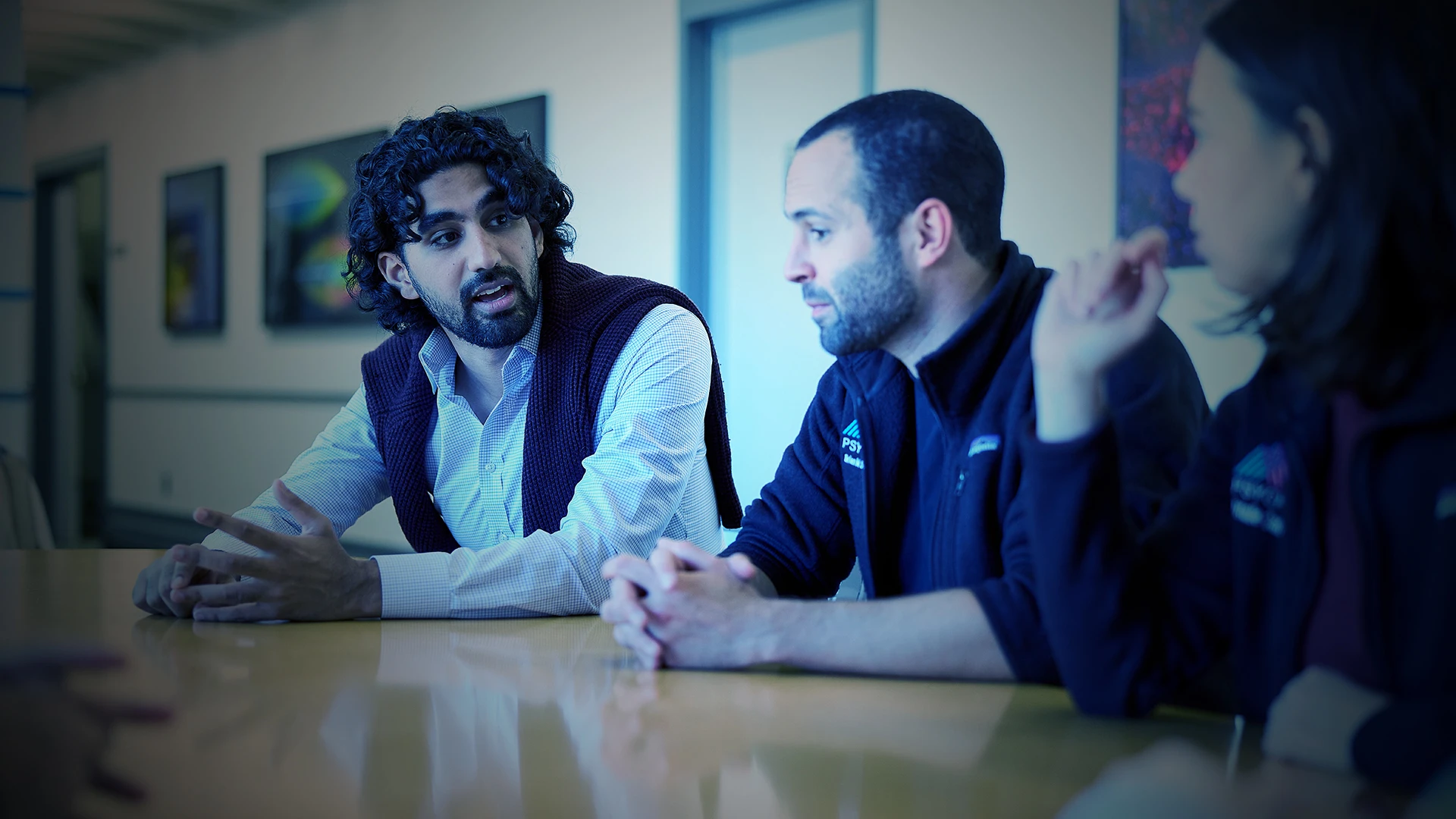To give trainees a head start in developing the skills they need to become tomorrow’s leaders in medical science, the Department of Psychiatry at the Icahn School of Medicine at Mount Sinai has built a robust physician-scientist training pipeline that continues to push boundaries.
“People often complete MD-PhD programs ready to start a scientific career, but they can lose sight of their scientific development during residency. As a result, a tremendous opportunity is lost,” says Antonia S. New, MD, Professor of Psychiatry, Residency Training Director, and Vice Chair for Education. “Our training programs incorporate opportunities to continue that research, and overwhelmingly, our graduates choose to stay within academia and become physician-scientists.”
The Department’s residency program is one of the few in the country that provides residents the opportunity to develop a successful clinical and research career at the same time, via its Physician-Scientist Residency Track. This structure provides resources, support, and protected time for trainees to develop independent lines of research. Graduates often join the faculty at Icahn Mount Sinai—the retention rate is more than 50 percent—and grow their research portfolio by starting labs, joining the Department’s centers of excellence, and collaborating with researchers from different disciplines.
The Physician-Scientist Residency Track is a competitive four-year program, established in 2008 and funded through an R25 grant from the National Institute of Mental Health (NIMH). “Many programs offer a one-size-fits-all track. Here, we take time to understand each trainee’s needs and tailor the program to them,” says Mercedes Perez-Rodriguez, MD, PhD, Associate Professor of Psychiatry and Associate Training Director for Research—herself a graduate of the inaugural class of physician-scientist track residents.
Some trainees arrive already with a line of research, while others have only the seeds of an independent project. Depending on each person’s needs, the amount of protected time for research can be shuffled across the different years. “We have a great network of mentors with wonderful cross-pollination across many disciplines related to mental health and neuroscience,” Dr. Perez says, noting residents’ access to faculty in immunology, neurology, neurosurgery, molecular biology, and more.
The department also launched the Training the New Generation of Clinical Neuroscientists fellowship program in July 2020, funded by a National Institutes of Health (NIH) grant. The two-year program provides intensive research training and experience for clinician-scientists after completion of clinical training.
Many graduates of the residency and fellowship programs have received the prestigious NIH Research Career Development Award, or K awards, enabling them to launch their own labs quickly. Through the accomplishments of Mount Sinai’s physician-scientists, the Health System has earned an excellent scientific reputation: the departments of Neuroscience, Psychiatry, and Genetics and Genomic Sciences are ranked fourth, seventh, and fifth, respectively, in NIH funding.
Here we shine a spotlight on four of the department’s current trainees.
Regret and Depression: Brian Sweis, MD, PhD, PGY4 in the Physician-Scientist Residency Track

Brian Sweis, MD, PhD (right), with other residents in the Physician-Scientist Residency Track. His work takes a unique cross-species approach by applying principles in neuroeconomics to capture decision-making processes conserved across evolution.
Research chief resident Brian Sweis started his residency in the physician-scientist track in 2020—the same year his research earned him a spot on Forbes’ “30 Under 30” list. Dr. Sweis has spent the past 15 years working in animal behavioral neuroscience to explore the brain circuitry underlying choice making. He’s continuing that line of inquiry, which began during his previous training at the University of Minnesota and Loyola University Chicago, under the Physician-Scientist Residency Track.
His work takes a unique cross-species approach by applying principles in neuroeconomics to capture decision-making processes conserved across evolution. “I believe one of the greatest reasons the development of new psychiatry treatments has remained stagnant is that our animal models can be so far removed from the human syndromes—an issue that has plagued neuroscience for decades,” he says. “I want to push the boundaries of the kinds of behaviors we can measure and psychological constructs we can model in animals, so that basic neuroscience breakthroughs are more readily translatable for clinical populations.”
Since joining Mount Sinai, he has been studying decision-making features of depression, including how the brain processes complex emotions like regret. In 2022, he was senior author on a Science Advances paper discovering distinct types of regret that stem from different circuits in the brain and may play unique roles in adaptive versus pathological emotional processing—a line of research informed by interactions with his patients and their life narratives.
In 2022, Dr. Sweis received the NIMH Outstanding Resident Award. In 2023, he received the Leon Levy Scholarship in Neuroscience from the New York Academy of Sciences, Junior Investigator Awards from the American Psychiatric Association (APA), Anxiety & Depression Association of America, and the American Society of Clinical Pharmacology. The same year, he became the first person at Mount Sinai to receive the Burroughs Wellcome Fund Career Award for Medical Scientists, which included $700,000 in research funds, enabling him to bypass the traditional K award route, instead submitting two R01-level grants prior to starting his final year of residency.
Dr. Sweis has accepted a faculty position as Assistant Professor of Psychiatry, and Neuroscience, and will be opening a lab this summer.
“Mount Sinai was the perfect place for me to infuse my expertise in translational neuroeconomics with world-class mentors in molecular and systems neuroscience,” Dr. Sweis says. “The incredibly supportive environment here was designed to pour accelerant on one’s career trajectory and robustly incubate the path of a physician-scientist toward early independence.”
New Approaches for Treating Suicide and Depression: Mina Rizk, MD, MSc, PGY3 in the Physician-Scientist Residency Track
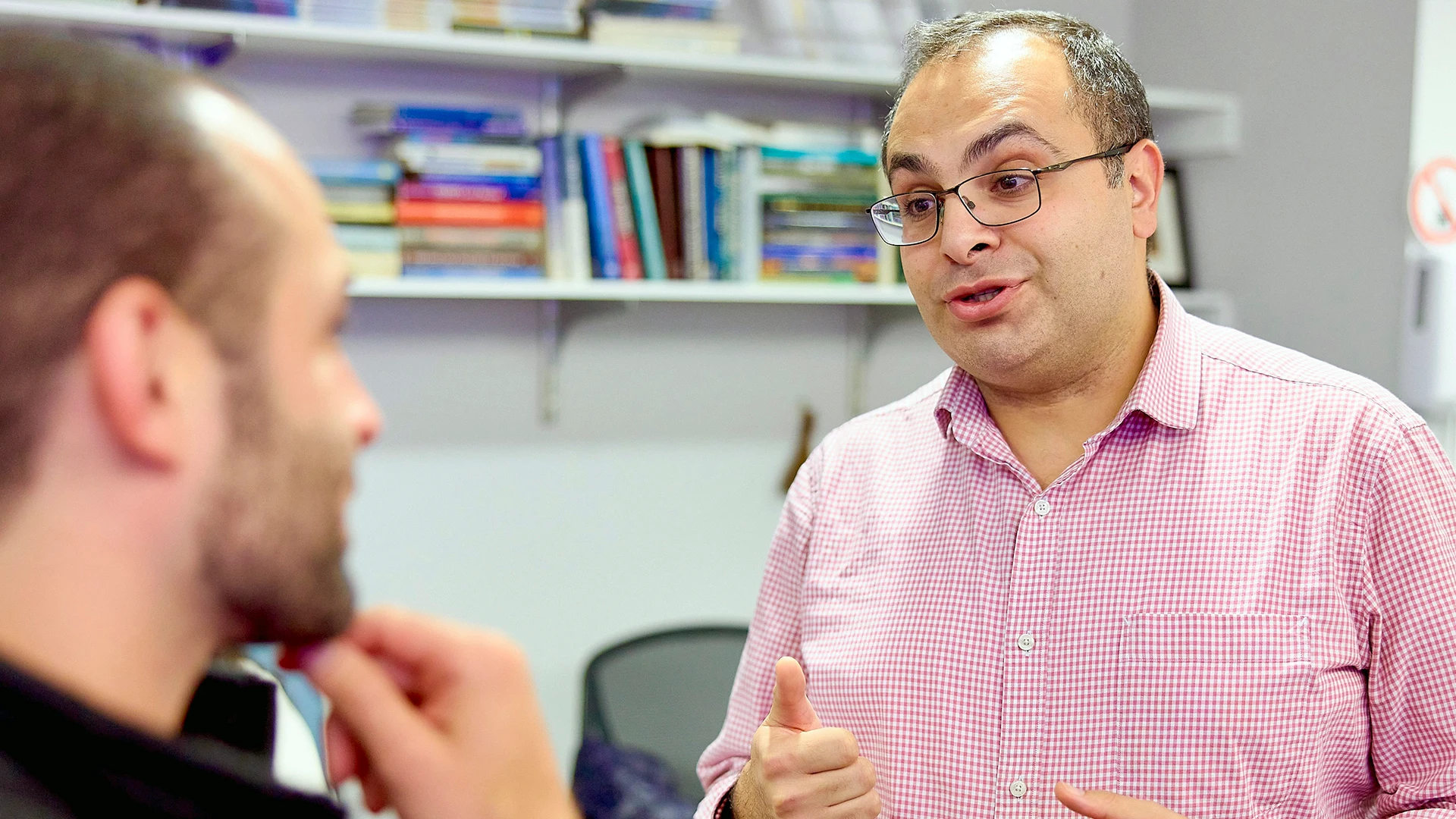
Mina Rizk, MD, MSc (right), works closely in collaboration with other Mount Sinai faculty in his research, which focuses on the neurobiology of depression and suicide. He is launching an innovative clinical trial to study the antidepressant effects of a monoclonal antibody in people with treatment-resistant depression.
Mina Rizk joined the Physician-Scientist Residency Track in 2021 with an interest in studying the neurobiology of depression and suicide. In collaboration with James Murrough, MD, PhD, Professor of Psychiatry, and Neuroscience, Dr. Rizk is launching an innovative new clinical trial to study the antidepressant effects of a monoclonal antibody in people with treatment-resistant depression—the first of its kind to treat mood disorders with an immune-modulating drug.
Dr. Rizk attended medical school at Minia University in his native country of Egypt, where he also completed a combined residency in psychiatry and neurology. He went to Columbia University in 2016 to study the neurobiology of suicidal behavior. In 2019, Dr. Rizk received the Paul Janssen Fellowship in Translational Neuroscience Research and a NARSAD Young Investigator Award to study anti-suicidal effects of buprenorphine, but the arrival of the COVID-19 pandemic delayed his study. In a novel arrangement, Dr. New allowed him to complete his buprenorphine study at Columbia while starting in the Physician-Scientist Residency Program at Mount Sinai.
Dr. Rizk has published in high-impact journals such as the American Journal of Psychiatry and co-authored the suicide prevention chapter in the APA Textbook of Mood Disorders. He also co-authored the largest meta-analysis to date on immune dysregulation in relation to suicide risk, published in European Neuropsychopharmacology in 2023. In 2022, Dr. Rizk was selected for the APA Research Colloquium for Junior Psychiatrist Investigators. In 2023, he received a travel award to attend the annual meeting of the Society of Biological Psychiatry and was honored with the NIMH Outstanding Resident Award. “I’m thankful for the flexibility that allowed me to continue my research at Columbia while starting at Mount Sinai, because this program is a perfect fit,” Dr. Rizk says. “I enjoy interacting with patients, and I hope to continue clinical research to further understand the biological mechanisms of depression and suicide.”
Growing Brain Cells to Decode Alzheimer’s Disease: Deepak Kaji, MD, PhD, PGY2 in the Physician-Scientist Residency Track
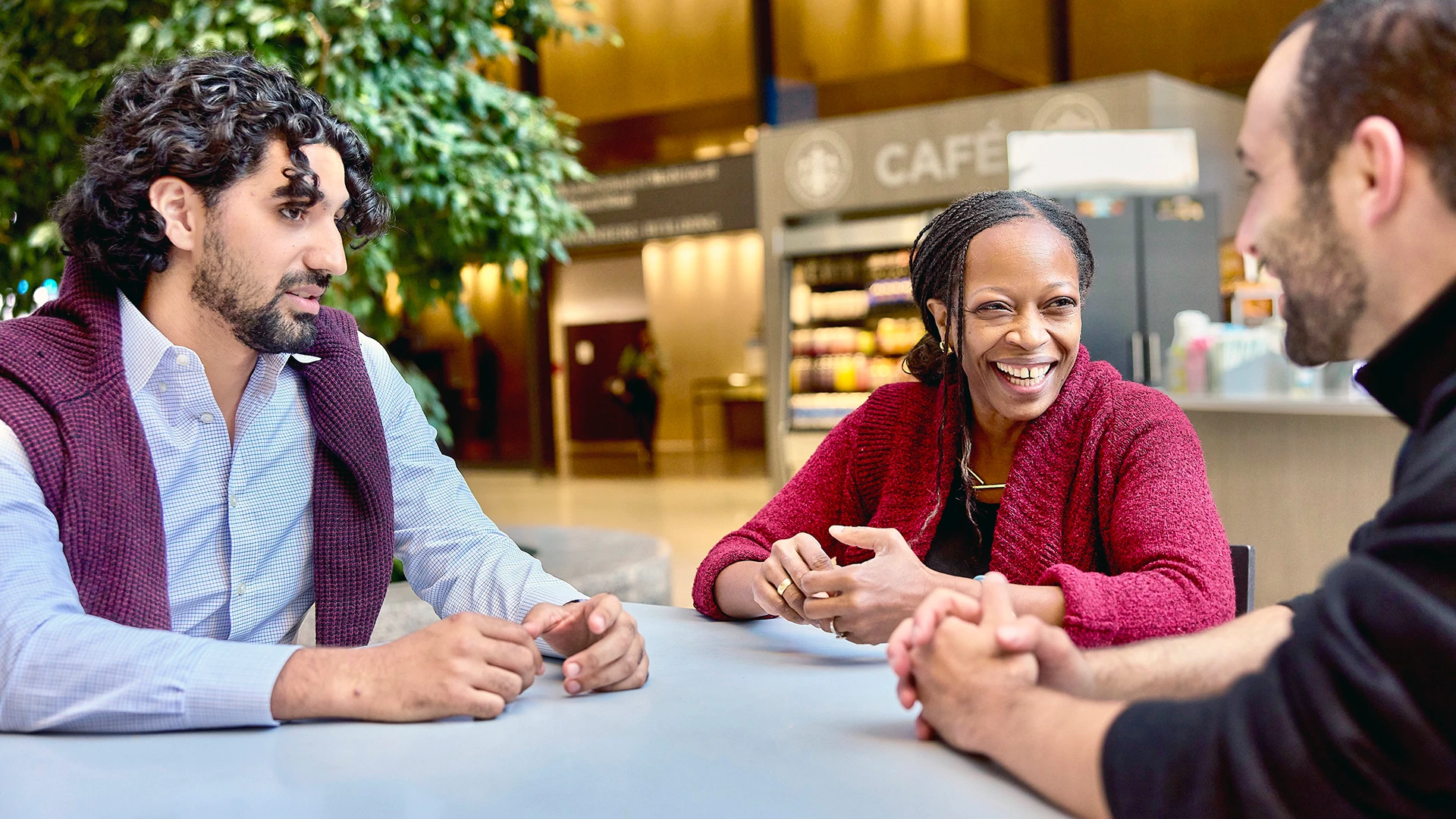
Deepak Kaji, MD, PhD (left), with colleagues Yasmin Hurd, PhD (center), and Dr. Sweis (right). Part of Dr. Kaji's research focuses on basic questions about how stem cells specialize to become different types of brain cells.
After completing his medical and doctoral degrees at Mount Sinai, Deepak Kaji, MD, PhD, was thrilled to stay put for his residency in the physician-scientist track, which he began in 2019. During Dr. Kaji’s PhD program, he worked with Mount Sinai’s Department of Orthopedics to grow tendons and to model acute and chronic tendon injuries, using computational and stem cell techniques. Now, he is leveraging stem cells and computational techniques to make different cell types in the brain.
Some of Dr. Kaji’s research focuses on basic questions about how stem cells specialize to become different types of brain cells, and much of his current work focuses on Alzheimer’s disease. “I’m interested in cell fate, because it can tell us how the brain forms and how that might go awry in the case of neurodegenerative conditions,” he says.
Recent research at Mount Sinai and elsewhere suggests microglia, an immune cell that clears debris from the brain, may have a more important role in the development of Alzheimer’s disease than previously recognized. Dr. Kaji is exploring that hypothesis using gene-editing technologies that allow him to model the effects of different gene mutations on microglia development and activity. Using disease modeling tools, he can toggle the mutation strength of different genetic targets associated with Alzheimer’s disease to get a sense of what the mutations might do in a person’s brain.
“It’s hard to do high-quality science when you have a full patient panel. Mount Sinai’s program is special in the way it protects large amounts of time for us to do science,” says Dr. Kaji, who was selected for the APA Research Colloquium for Junior Psychiatrist Investigators in 2023. “There are so many people at Mount Sinai who graduated from the research track residency and stayed on. We can see them doing that bench-and-bedside work we dream of doing, and that’s very exciting.”
Expanding Global Mental Health Services: Brittany McCoy, MD, T32 Fellow
Brittany McCoy, MD, took a less traditional path to being a physician-scientist. During medical school at Indiana University, she became interested in pediatric global mental health research. In 2016, she took a yearlong leave to work as a Pediatric Global Health Research Scholar with the Academic Model Providing Access to Healthcare (AMPATH) research program in Eldoret, Kenya. There, she worked with Rachel Vreeman, MD, MS, now Chair of the Department of Health System Design and Global Health at Mount Sinai, on projects related to the mental health of adolescents living with HIV and HIV-related stigma. After graduation, Dr. McCoy chose Mount Sinai for the Pediatrics/General Psychiatry/Child and Adolescent Psychiatry Training (Triple Board) Program, which she completed in 2023.
Interested in deepening her research experience, she opted to continue her training at Mount Sinai as a 2023 recipient of the T32 fellowship. “In doing the triple board residency, my time to do extra things was more limited. This fellowship provides an opportunity to get that mentorship and support to build a research career,” she says.
While most of the program’s fellows are involved in traditional neuroscience research, Dr. McCoy chose to return to Kenya to continue the global health work she had started during medical school and continued during residency. With Dr. Vreeman, she recently finished a project to culturally adapt commonly used measures of mental health for youth living with HIV in Kenya, with support from Mount Sinai’s Pediatric Research Scholar Award. Dr. McCoy was also selected for the 2022 American Academy of Child and Adolescent Psychiatry Research Colloquium for Early Career Investigators. Moving forward, she plans to continue her research on global mental health services delivery while expanding mental health services in Kenya for youth with and without HIV in her position as the Adolescent Mental Health Team Lead for AMPATH.
With access to experts in psychiatry, pediatrics, and global health, Mount Sinai has been the perfect place to further her research training, Dr. McCoy says. “Both the psychiatry and global health departments have been so flexible and supportive of the type of career I want to build, even though it doesn’t fit into a neat box,” she adds. “That kind of support is unique, and I’m so grateful for it.”
Featured

Deepak Kaji, MD, PhD
Resident Physician

Brittany McCoy, MD
T32 Postdoctoral Research Fellow
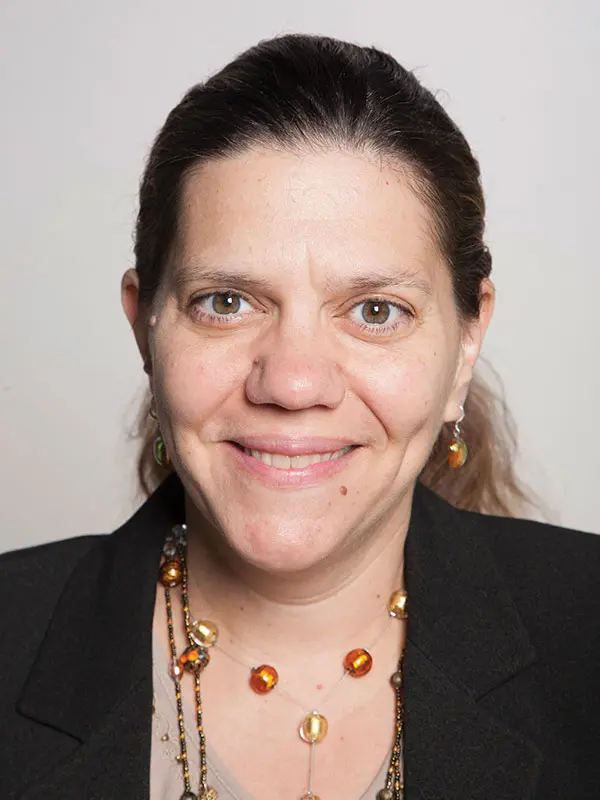
Antonia New, MD
Professor of Psychiatry; Residency Training Director; Vice Chair for Education
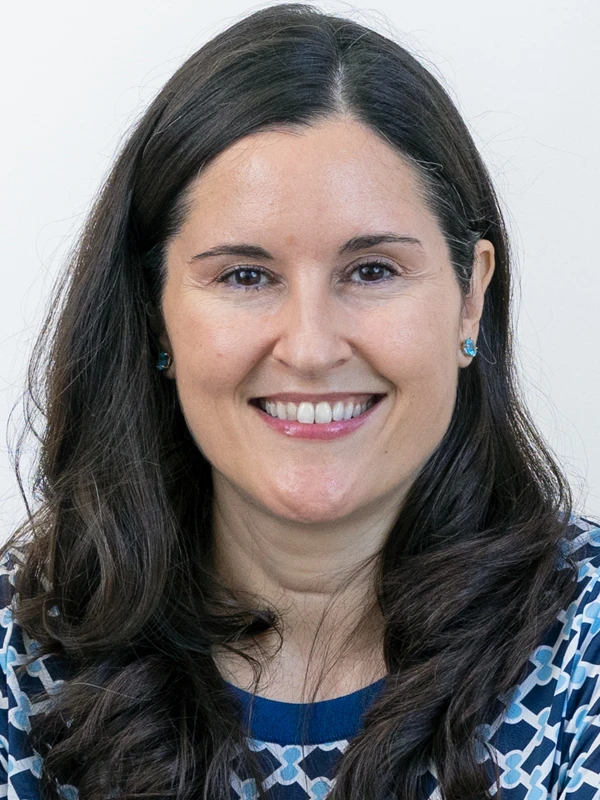
M. Mercedes Perez-Rodriguez, MD, PhD
Associate Professor of Psychiatry; Associate Training Director for Research
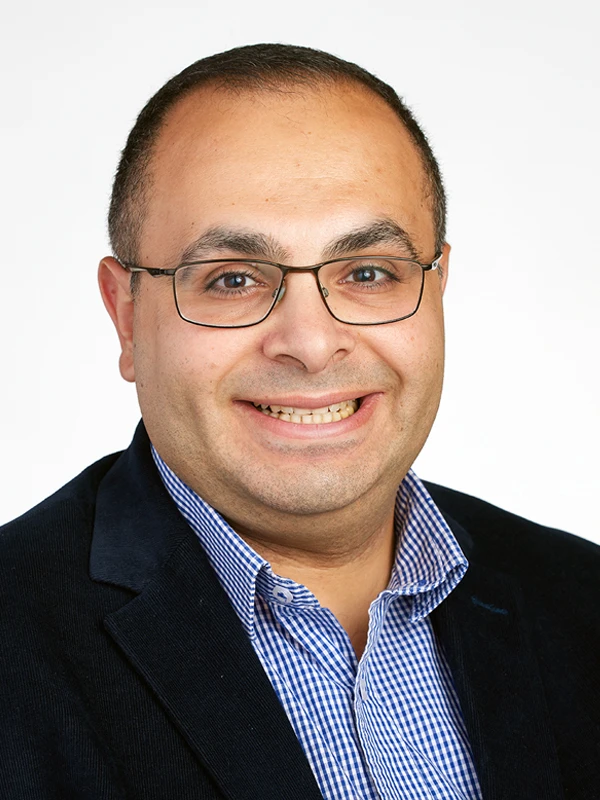
Mina Rizk, MD, MSc
Resident Physician
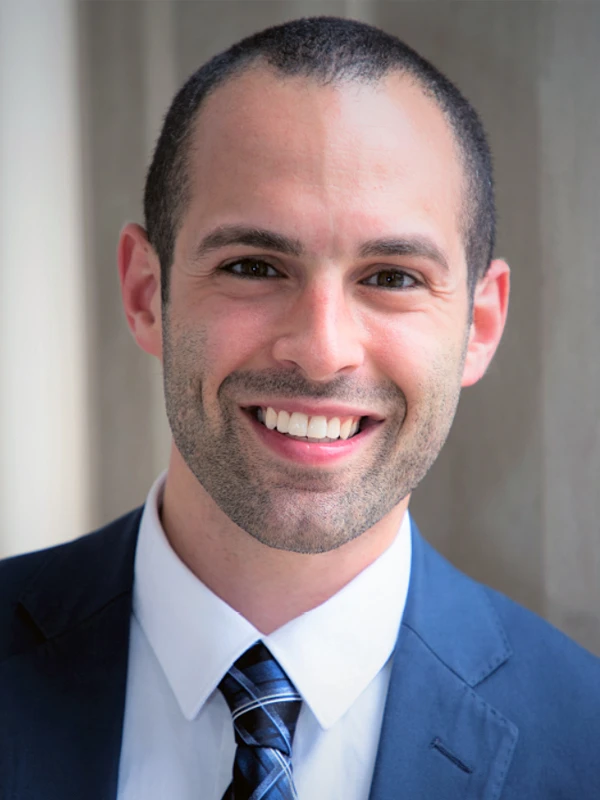
Brian Sweis, MD, PhD
Resident Physician
